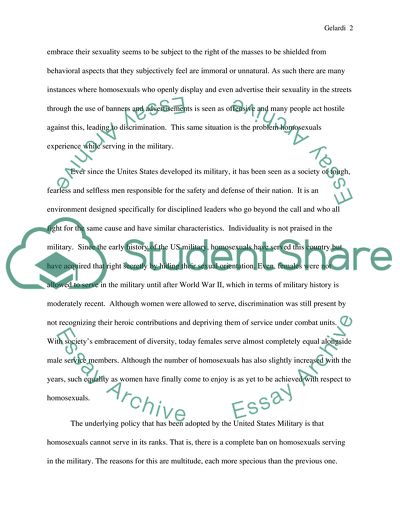Cite this document
(“Homosexuals in the Military Term Paper Example | Topics and Well Written Essays - 2000 words”, n.d.)
Homosexuals in the Military Term Paper Example | Topics and Well Written Essays - 2000 words. Retrieved from https://studentshare.org/social-science/1744536-homosexuals-in-the-military
Homosexuals in the Military Term Paper Example | Topics and Well Written Essays - 2000 words. Retrieved from https://studentshare.org/social-science/1744536-homosexuals-in-the-military
(Homosexuals in the Military Term Paper Example | Topics and Well Written Essays - 2000 Words)
Homosexuals in the Military Term Paper Example | Topics and Well Written Essays - 2000 Words. https://studentshare.org/social-science/1744536-homosexuals-in-the-military.
Homosexuals in the Military Term Paper Example | Topics and Well Written Essays - 2000 Words. https://studentshare.org/social-science/1744536-homosexuals-in-the-military.
“Homosexuals in the Military Term Paper Example | Topics and Well Written Essays - 2000 Words”, n.d. https://studentshare.org/social-science/1744536-homosexuals-in-the-military.


